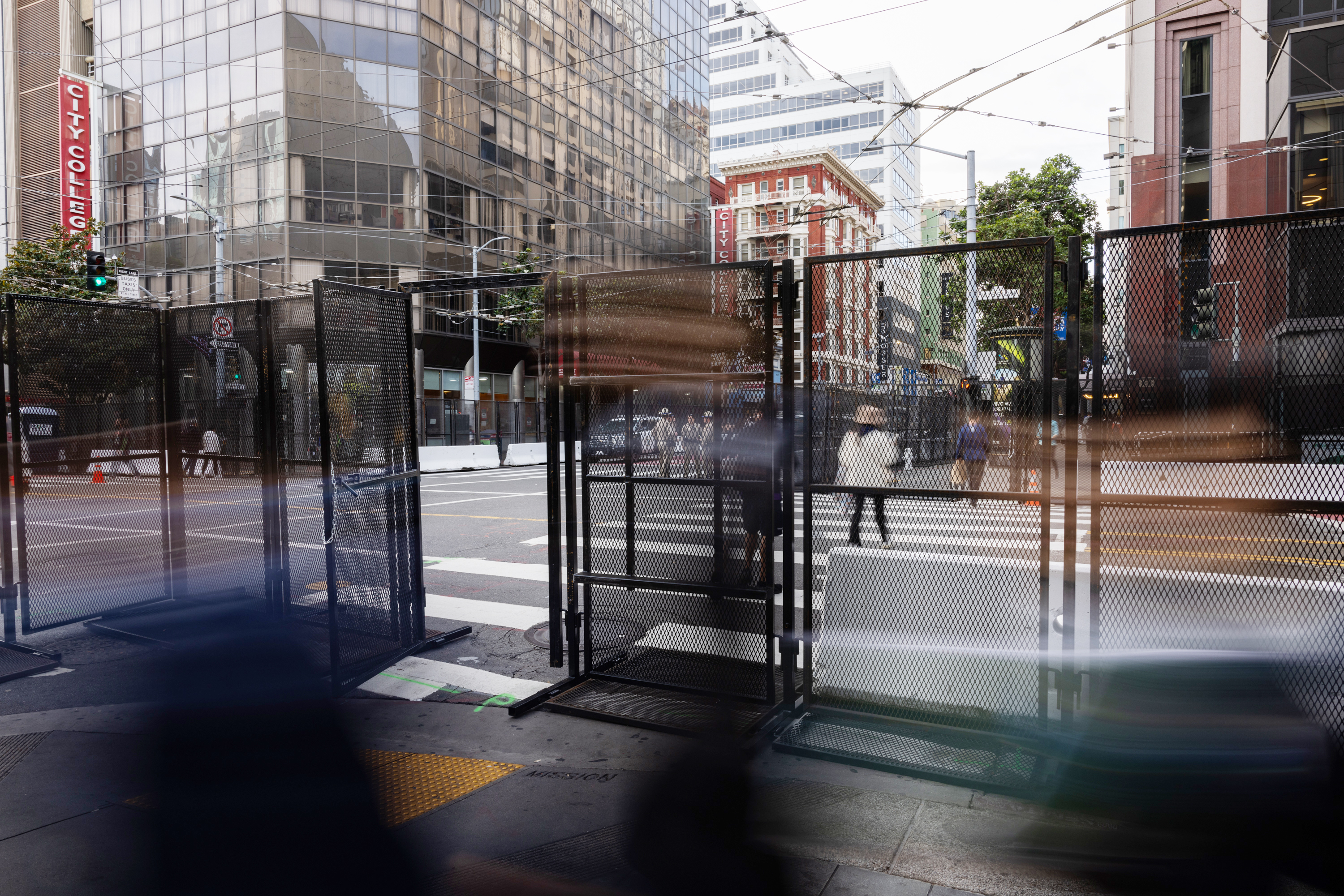Carla Mays, the CEO of consulting firm Smart Cohort, is no stranger to the Asia-Pacific Economic Cooperation summit. In fact, she was in Seattle earlier this year as part of the meetings held in the lead-up to November’s main conference in San Francisco.
But she wasn’t prepared for the impact it would have on her SoMa-based business, largely because of a lack of communication. Mays, who also lives in an apartment building within the event’s security zone, said the extensive fencing and limited mobility made her neighborhood less like home and more like a prison.
She ended up moving herself and her business to a hotel during APEC, but she noted that many of her disabled and elderly neighbors weren’t so lucky.
“When I came back to my house, people were shellshocked,” Mays said. “They had essentially been caged in their houses for a week.”
Mays is just one of the scores of residents and small business owners across San Francisco who took Mayor London Breed and city officials to task for their handling of APEC the gathering of world leaders that overtook much of Downtown San Francisco last month, saying that they were blindsided by the security zone and the total lack of foot traffic in the area.
Dozens of SoMa small business owners, residents and community organizers spoke out about APEC’s immediate financial impact at the Board of Supervisors’ Budget and Finance Committee on Wednesday. The board previously approved a resolution to provide $10 million for community members affected by APEC, but that nonbinding resolution serves as a little more than a suggestion.
The hearing was called by San Francisco Supervisor Matt Dorsey, whose district includes much of the area cordoned off by the security zone.
Business owners in the area stayed open—and, in some cases, prepared additional resources and staffing to take advantage of a potential influx in customers.
But APEC wasn’t a typical conference: With a pervasive security detail and unscalable fencing towering over much of SoMa, streets that are packed during traditional conferences were largely empty. Scott Rowitz, the executive director of the Yerba Buena Community Benefit District, pointed out that foot traffic in the district during the week of APEC was down 33.8% year-over-year, according to cellphone data from Placer.ai.
He attributed much of that to the protracted security zone setup and the presence of the Secret Service during APEC.
While Rowitz did emphasize the benefits for San Francisco’s reputation on the global stage—and the around $52 million in economic impact that the conference brought in—public commenters at the hearing were less generous in their sentiments toward city leaders.
“The brutal truth of the matter is that the city should have been more supportive and protective of its small businesses before campaigning to host APEC, before signing on and while working with the Secret Service,” said Manuel Ramirez, the owner of Korean fried chicken restaurant Bonchon inside the Metreon. He laid out what he described were the “death-blow level losses” his business sustained over the course of APEC: An 88% drop in business for the week.
What’s more, Ramirez said that many restaurants were swayed by officials to stay open that week with the promise of an increase in business so that San Francisco would “look like a vibrant city.”
“They saw us as acceptable collateral damage, the sacrificial lambs for putting San Francisco on the world stage,” he said. “For that callous and calculated mindset, someone needs to be held accountable.”
Business owners repeatedly detailed how the security presence for APEC made it impossible for them to operate and encouraged the public to perceive the area as a place to avoid that week.
David Cohen, CEO of the Grove, said that his restaurant was affected disproportionately by the security and protest zones, accruing a $50,000 loss in revenue as a direct result.
“This loss was a direct cause of the security zone in APEC,” Cohen said. “No other factors contributed to it.”
Paige Scott, the manager of Yerba Buena’s Ice Skating and Bowling Center, said that the center lost around $30,000 due to closing during APEC—and is now getting bombarded by people seeking refunds for events that were canceled as a result of the summit.
Other business owners and activists criticized law enforcement for the aggressive security measures put in place. Scott, for example, said that she wasn’t allowed to bring ice skates into the perimeter, while Bocado owner Manny Ramirez said police did not let him into his own restaurant building. Activists, including prominent Filipino activist Brandon Lee, said demonstrators were allegedly assaulted by police during APEC demonstrations.
Raquel Redondiez, the project manager of SOMA Pilipinas, urged the city to immediately disperse the $10 million fund to those impacted.
“As soon as the perimeters went up, it became clear that what was promised in terms of a boon to small businesses would not happen,” she said.
Supervisor Connie Chan drew a comparison to city leaders’ handling of APEC, which she said hurt the most vulnerable communities, to recent budget cuts made amid the city’s growing deficit.
“It is the city’s responsibility to step up to the plate [so] that we have winners all around,” she said.
